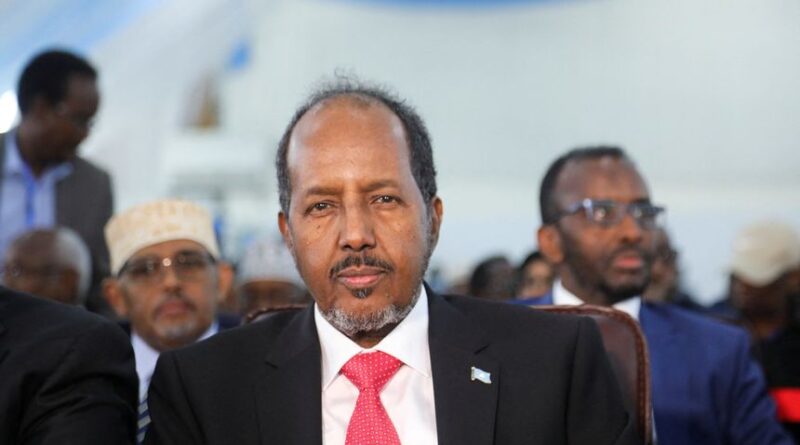Somalia’s Parliament Picks Siad Barre apologist, Hassan Sheikh Mohamud, as President
Somalia’s lawmakers voted Sunday to bring back a former leader, Hassan Sheikh Mohamud, and oust President Mohamed Abdullahi Mohamed, whose attempts to delay elections and remain in office beyond his term alienated the U.S. and other Western countries.
Mr. Mohamud’s election to a four-year term comes as Somalia, which sits on the tip of East Africa, faces profound threats poorly addressed by the country’s divided leaders. Al-Shabaab, the local al Qaeda affiliate, has gained ground in rural areas of Somalia and carried out devastating attacks in Mogadishu, the capital. The country is experiencing drought that has left some six million people facing acute food insecurity and 1.4 million children under the age of five with acute malnutrition, according to the United Nations.
The security situation is so unstable that the lawmakers conducted their vote in a hangar on a fortified military base, protected by troops from the African Union.
The U.S., Europe and other nations with interests in Somali stability blamed Mr. Mohamed, known widely by his nickname, Farmaajo, for stalling the elections and worsening political gridlock. “They had to replace him if they had any hope of re-establishing some decent relationship with the international community,” said J. Peter Pham, a former senior State Department envoy.
The 66-year-old Mr. Mohamud won a 214-110 majority in the third and final parliamentary voting round late Sunday; Somalia’s presidents are elected by legislators, rather than in one-person-one-vote direct balloting. Supporters fired guns into the air to celebrate the victory in Mogadishu, according to witnesses.
Mr. Mohamed tweeted his congratulations to Mr. Mohamud. “I urge all my fellow citizens to support & pray for his success,” he wrote.
Mr. Mohamud served as Somalia’s president from 2012 to 2017, when Mr. Mohamed won election.
Critics say both men led administrations perforated with corruption, and say the election process itself was influenced by bribery.
Western countries grew increasingly frustrated with Mr. Mohamed as the elections were delayed for more than a year. Mr. Mohamed was supposed to step down in February of last year. In an unusual step in March, U.S. Secretary of State Antony Blinken restricted visas for Somali officials it deemed responsible for “undermining the democratic process” in the country.
“Journalists and opposition party members working to support democratic institutions and transparent processes have been targeted with harassment, intimidation, arrest, and violence,” Mr. Blinken said.
International donors gave Somali authorities a Tuesday deadline to hold the vote or risk losing critical funding, including a $400 million emergency loan from the International Monetary Fund.
Ultimately, Mr. Mohamud beat out some three dozen candidates for the presidency.
The change in leadership comes as President Biden is considering a Pentagon request to station hundreds of U.S. commandos in Somalia to help local forces fight al-Shabaab, which has threatened U.S. interests in the region. Then-President Donald Trump pulled American troops from the country and moved them to neighboring Kenya and Djibouti shortly before leaving office last year, a move that U.S. commanders say has strengthened the insurgents.
The government announced a dusk-to-dawn curfew in Mogadishu for Sunday, and most shops and streets were deserted, according to witnesses. Last week, four people, including two government soldiers, were killed and at least seven injured when a suicide bomber attacked a security checkpoint near a political rally at heavily defended Mogadishu airport, police said.
The U.S. Embassy and many international organizations are situated within the airport security bubble.
Russia’s invasion of Ukraine has worsened Somalia’s food shortage just as the rains appear to be failing for the fourth straight season. Somalia normally buys between 49% and 59% of its wheat from Ukraine, and another 33% to 43% from Russia, supplies now largely cut off, according to the U.N.
The Wall Street Journal

